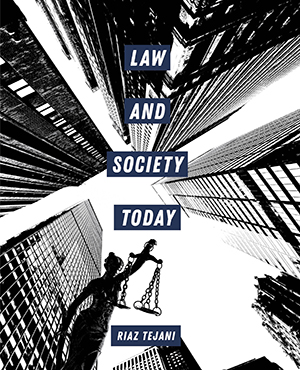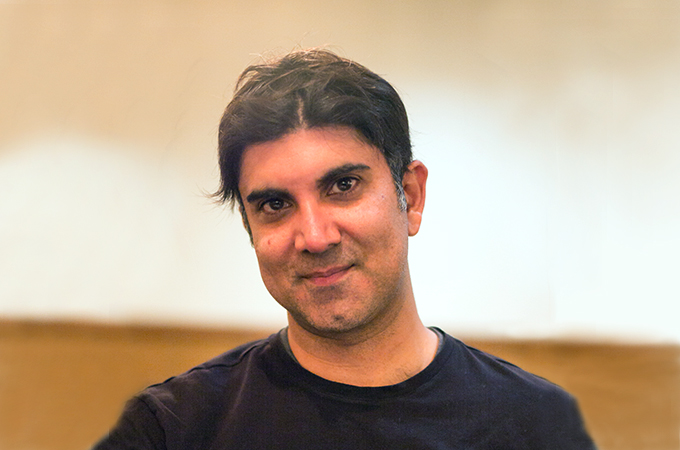In his years as a law and ethics professor, Riaz Tejani searched for a book that would teach students about the watershed events of the past two decades, such as the Great Recession, corporate scandals, and the War on Terror, and how they have affected society and the judicial system. When he realized there were not many such books written by authors formally trained in both social sciences and law, Tejani decided to write one himself.

The result is Law and Society Today (University of California Press), an exciting new hybrid text published in August. According to Tejani, a professor in the University of Redlands School of Business, the book explores the many ways in which law and social life mutually reinforce one another and how economics and business are playing an increasingly important role in the definition of “society” so far as the law is concerned.
The book’s primary audience is university students who have an interest in or are planning for careers in law or business. Tejani says that his text gives a more dynamic picture of the way change happens than many books in the field, which tend to provide a fixed notion of what the legal system looks like and how it impacts society.
In the book, Tejani addresses the modern concepts of migration, neoliberalism, multiculturalism, and the influence of law and economics in law education, policy debates, and judicial decision-making—hot button topics he believes are increasingly important to discuss. “These issues are some of the most pressing of our time,” he says.
The book also addresses some of the challenges facing lawyers and judiciaries today, such as the rising costs of law school and limited access to justice. In a system where students spend so much money to obtain a law degree, Tejani argues, the majority of new lawyers will have to opt for positions where they can make hundreds of dollars an hour to pay back student loans, rather than take on more widespread low-level cases for a more modest salary.
“Today, lawyers are trained to argue in the highest courts, when most people don’t even need their cases argued at trial,” he says. “What people need is advocacy and dispute resolution around divorces, wills and trusts, and basic traffic violations. The problem of access to justice in this country is not having too few lawyers—it’s producing lawyers to meet those basic needs.”
Tejani always knew he wanted to pursue a law degree, but didn’t know exactly how it would happen. Having studied American ethnic studies as an undergraduate, he went on to study social anthropology at Princeton, eventually earning a Ph.D. and starting law school at the University of Southern California within the same year.
After a few professorships in Arizona and Illinois, Tejani landed at the University of Redlands. “I always knew that I wanted to conduct research and teach,” he says. “Redlands always stood out to me as strong and unique—it’s a historic institution that offers faculty freedom and provides students a mission-driven education.”
RSVP to Tejani’s book reception, which will be held on Tuesday, December 10 at 4:30 p.m. in the Casa Loma Room on the main Redlands campus. Or learn more about the School of Business.






